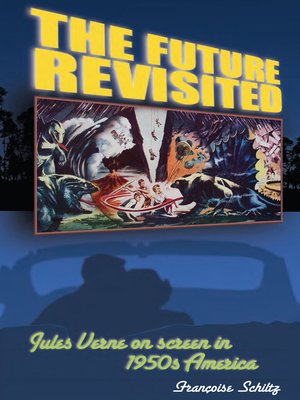
Sign up to save your library
With an OverDrive account, you can save your favorite libraries for at-a-glance information about availability. Find out more about OverDrive accounts.
Find this title in Libby, the library reading app by OverDrive.



Search for a digital library with this title
Title found at these libraries:
| Library Name | Distance |
|---|---|
| Loading... |
The Future Revisited examines Hollywood adaptations of Jules Verne stories and is an interdisciplinary study that offers a fresh perspective on film history, French literature, science fiction and America in the 1950s. It is a fascinating and authoritative account of how the stories of Jules Verne, a distinguished French novelist better known around the world as the father of science fiction and an accurate predictor of much of the twentieth century, found particular resonance with US filmmakers in the 1950s. Schiltz looks at four of the most popular films - Around the World in 80 Days, 20,000 Leagues Under the Sea, Journey to the Center of the Earth and Mysterious Island - and argues that there were many parallels between Verne's technological adventures and postwar America, with its themeparks, shopping malls, Levittowns and plethora of consumer goods. Just as nineteenth-century readers of Verne's books could experience travel from the comfort of their seats, viewers of these films could be swept away on an imaginary flight, a voyage in a submarine, or a trek to the earth's core, all in spectacular widescreen and with ground-breaking special effects. Yet the pleasures offered were ambivalent: encounters with exotic places and cultures might have led the audience to question common assumptions such as gender roles; seeing futuristic domestic spaces could highlight the confusion of attitudes to private and public life in suburbia, and the films' blending of nostalgia and progress might draw attention to society's tug-of-war between innovation and conformity.







